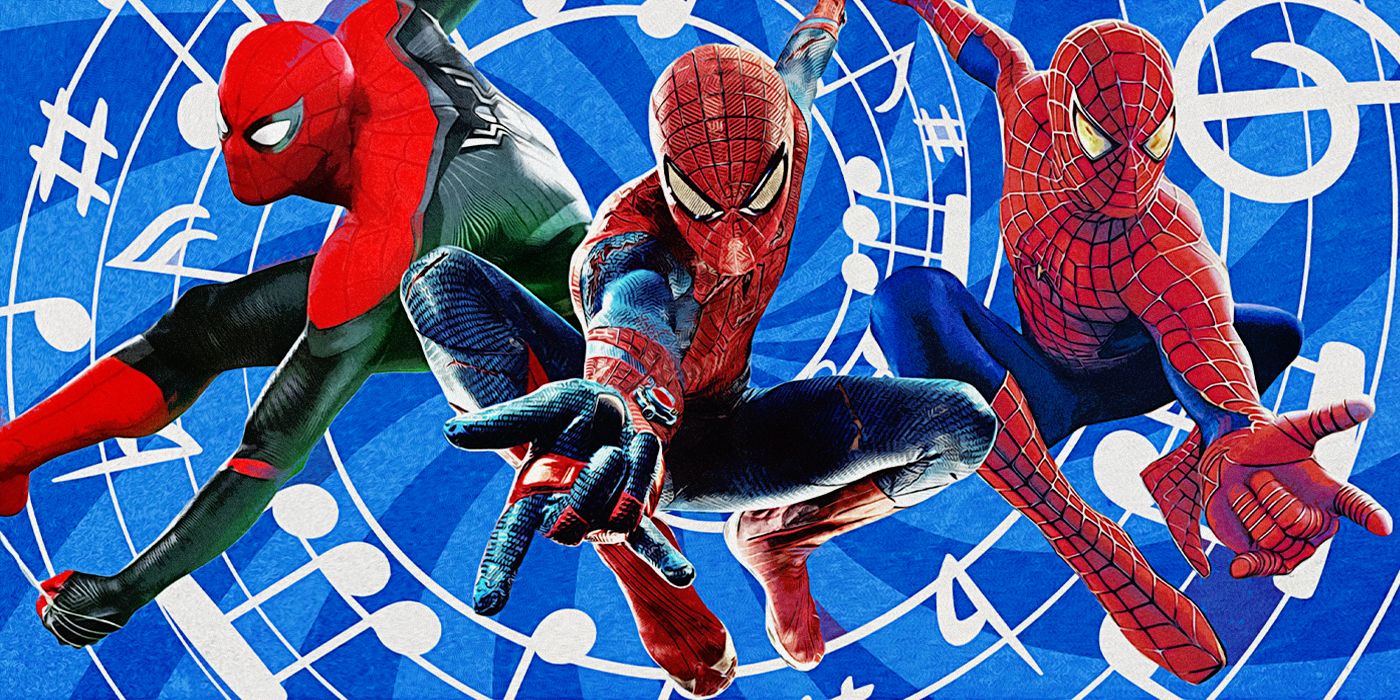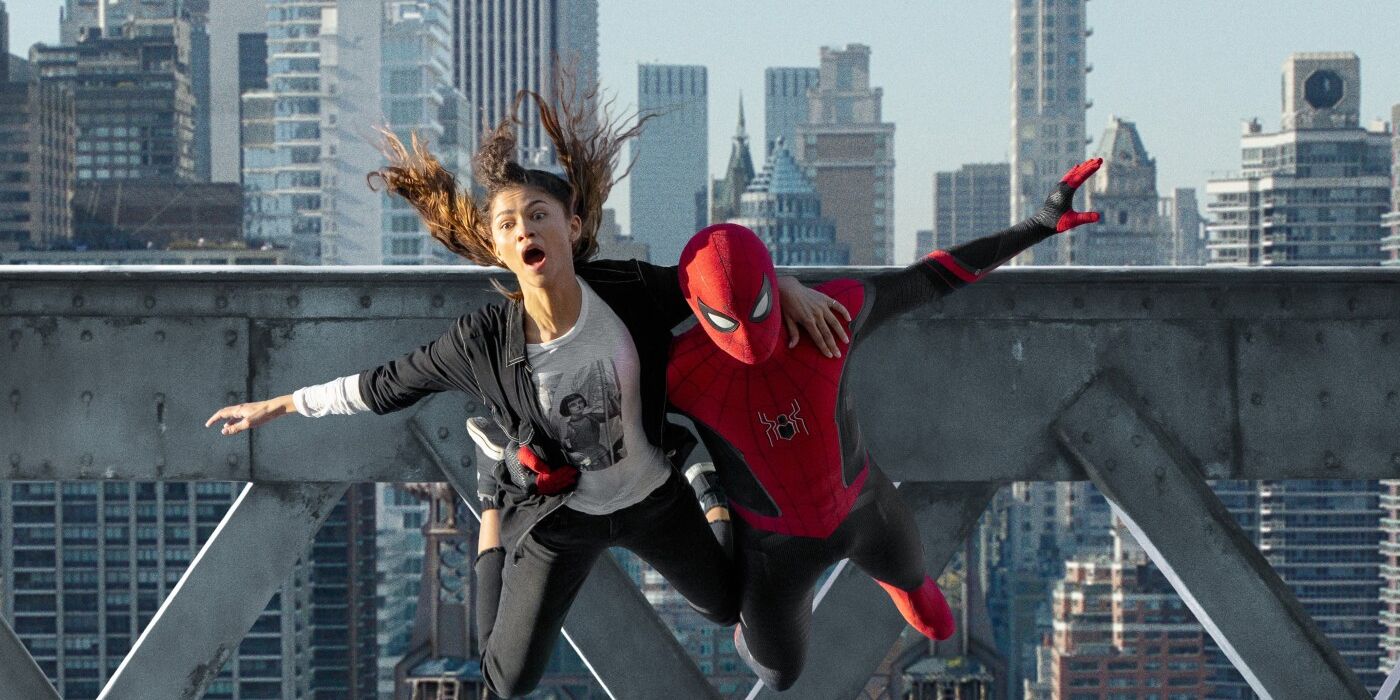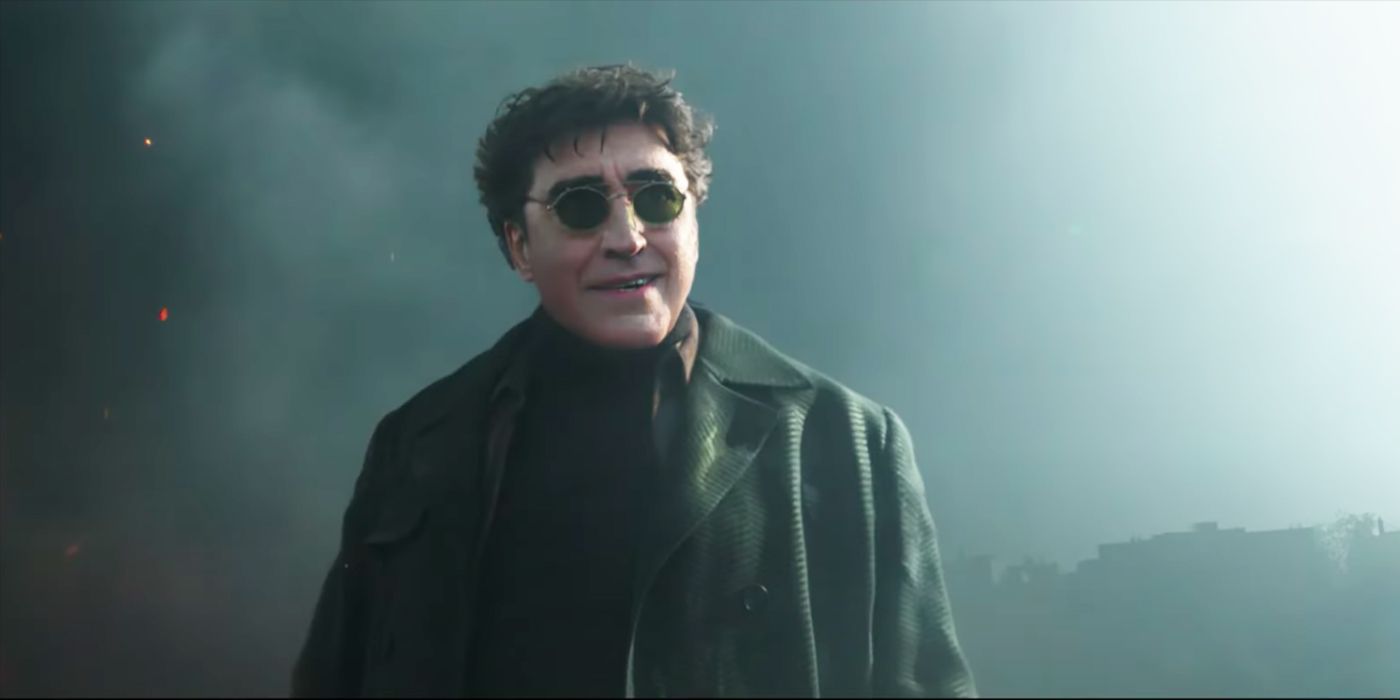Editor’s Note: The following contains spoilers for Spider-Man: No Way HomeSpider-Man has always had a catchy superhero theme, originating from the 1967 cartoon and written by Paul Francis Webster and Bob Harris. The theme would be used in endless Spider-Man properties across entertainment and media. The Spider-Man theme makes numerous appearances throughout Sam Raimi’s trilogy and is most notably remembered in Spider-Man 2 when Peter Parker (Tobey McGuire) sees a woman on the street (Elyse Dinh) playing it on the violin. In Marc Webb’s The Amazing Spider-Man 2, the theme makes another appearance, this time as Peter Parker’s (Andrew Garfield) ringtone. And in Jon Watts’ Spider-Man: Homecoming, the Spider-Man theme song plays over the Marvel Studios opening credits in an orchestral rendition by composer Michael Giacchino.
And while the MCU itself had a rocky start in establishing a consistent sound to its connected universe apart from Alan Silvestri’s Avengers theme — see Every Frame a Painting’s video essay about it — the subsequent phases began to utilize its recurring film composers, Giacchino among them, who not only scored Doctor Strange but also every film in Tom Holland’s ‘Home’ trilogy — Homecoming, Far From Home, and the most recent No Way Home. However, the task of Spider-Man’s latest entry isn’t only to continue its connectivity with other MCU films. From all the trailers and posters to Tom Holland’s own comments in Total Film about No Way Home being “a huge moment in cinematic history [because it’s] three generations coming together”, everyone knew this film would re-introduce past Spider-Man villains and heroes (we warned you there would be spoilers) into the MCU by way of magic and the multiverse. So, it would make sense that the film’s score would harken back to previous musical melodies. From Danny Elfman’s Spider-Man trilogy to James Horner’s The Amazing Spider-Man, and to Hans Zimmer’s The Amazing Spider-Man 2 scores, Michael Giacchino references music from across Spider-Man’s multiverse and legacy.
Before his work on the Spider-Man films, Giacchino made his MCU debut in 2016’s Doctor Strange, not only by scoring the film itself but by taking up the mantle from Brian Tyler (who scored Iron Man 3, Thor: The Dark World, and Avengers: Age of Ultron) and introducing a new Marvel Studios fanfare theme that’s still in use across the films and streaming shows. Giacchino’s score for the Sorcerer Supreme himself would later be cited by Alan Silvestri in Avengers: Endgame when Bruce Banner (Mark Ruffalo) visits the Ancient One (Tilda Swinton) during the Battle of New York. But of course, since Doctor Strange himself (Benedict Cumberbatch) plays a significant role in No Way Home by performing the spell that invites all the strange visitors of “multiverse men” into the MCU, Giacchino would call back to the theme he originally composed for the wizard’s solo film. There are further variations to the sound of Doctor Strange, especially in the sequence in which Peter Parker and Steven Strange reach a disagreement about what to do about all the villains, culminating in a visually — and musically — engaging battle in the Mirror Dimension.
But while Doctor Strange plays a part in expanding the multiverse, the real appeal of No Way Home for fans is the return of Spider-Man’s cinematic rogues’ gallery, and with them come some of their sinister themes. Doctor Otto Octavius aka Doc Ock (Alfred Molina), first made his appearance in Raimi’s Spider-Man 2 and is the first villain that Tom Holland’s Peter Parker meets after Strange’s spell. When the eight-limbed mad scientist comes looking for Peter and his machine, his entrance and rampage on the bridge are ushered in with familiar notes from Elfman’s “Doc Ock is Born” from Spider-Man 2. But Doc Ock isn’t the only villain from the Raimi films who makes a return, as Norman Osborn aka Green Goblin (Willem Dafoe) is back and even more sinister than before.
The Goblin is the primary villain among the others returning, and Giacchino utilizes Elfman’s musical motifs from the very first Spider-Man score, specifically a segment entitled “Enter the Goblin”, to make Dafoe’s anticipated return all the more villainous. And while his villain and movie were less well-received than other Spider-Man films, Jamie Foxx returns as Electro, albeit in a more appealing costume. When Electro first arrives, any keen fan and score aficionado can recognize the dub-step influenced theme “I’m Electro” by none other than DC’s go-to composer, Hans Zimmer. Giacchino straddles a fine line between the MCU and its expanded universe, but he manages to incorporate Elfman’s and Zimmer’s themes into a consistent soundtrack for the villains.
To no one’s surprise, the other cinematic Spider-Men also show up in this film. When Peter’s best friends MJ (Zendaya) and Ned (Jacob Batalon) are looking for their Peter, Ned accidentally summons up other variants of Spider-Man. Andrew Garfield and Tobey McGuire make their MCU debut through a portal conjured by Ned’s newly found magic powers and a sling ring. Throughout Garfield and McGuire’s time in No Way Home, which was surprisingly significant, their respective musical themes play. Giacchino references the late James Horner’s theme from The Amazing Spider-Man, entitled “Main Title — Young Peter” for Garfield’s Spider-Man and, perhaps the more nostalgic theme, Danny Elfman’s “Spider-Man Main Theme” for Tobey McGuire’s. While I personally would have enjoyed more of their themes being used in the film, especially Elfman’s iconic theme or even Zimmer’s theme for Garfield from The Amazing Spider-Man 2, hearing even the slightest few notes already enhances the inherent emotional and nostalgic investment in these characters.
With every Spider-Man movie comes a new, often spectacular soundtrack. Take, for instance, Spider-Man: Into the Spider-Verse, which has become synonymous with Post Malone and Swae Lee’s “Sunflower”. Building on what Spider-Verse achieved in animated form, No Way Home is an amazing feat, not only in capping Tom Holland’s Spider-Man ‘Home’ trilogy but in giving fans more than they asked for as a culmination of all three live-action cinematic Peter Parkers. While it’s disappointing that composer Michael Giacchino won’t be returning with director Scott Derickson to Doctor Strange in the Multiverse of Madness, veteran Spider-Man duo Sam Raimi and Danny Elfman return for the Sorcerer Supreme’s follow-up where he will surely deal with the consequences of No Way Home.



